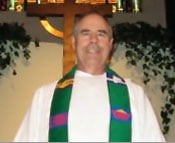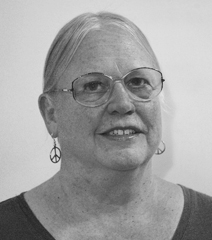QUESTION: My wife and I desperately wanted to have children and after eight years of trying and still not starting a family, we adopted two children at birth, first a boy, now 6 years old and later another boy, who is 3 years old. We love them both so much and do everything we can to keep them safe and feeling loved.
Recently in the news, we heard about two young boys who were beaten to death, one by a stepfather, and the other by the mother’s boyfriend. Neither my wife nor I can understand cruelty to children and the mindset of those who would harm a helpless child. We’re praying for the children’s souls and for the individuals who committed these transgressions. Could you shed a spiritual light on situations like this?
~ Proud to be a Dad
Dear Proud Dad,
First of all, thanks for adopting your two sons. I think it takes a special person to adopt a child. One of my brothers has an adopted son to go along with his biological children, and I think the world of him and his wife for sharing their home by including another. As to why such monstrous crimes occur, there are usually several reasons. If a person was abused as a child, that person can easily become an abuser himself/herself in adulthood.
You have heard the expression, “The apple doesn’t fall far from the tree.” That statement can be true in so many ways. Sometimes drugs play a part. In a recent murder up in Palmdale of an 8-year-old boy, the mother, allegedly, is a drug abuser. The scourge of drug addiction is such that nothing matters more than a “fix,” so a mother or father who is addicted really can’t parent because his/her addiction gets in the way.
Also, some parents were unwanted children when they were born, so their needs are such that they fear moving against the person (boyfriend/girlfriend) who may be the first person who ever truly loved them; if that boyfriend/girlfriend gets violent with that person’s child, the unwanted child who is now a needy parent doesn’t have the backbone to tell the abuser to stop abusing because he/she fears rejection. As a result, the child suffers because the parent is afraid of pushing away the only one who ever loved her/him.
You asked for a spiritual light to be shed; I’m not sure I have a spiritual answer. Parenting is hard work, whether one is religious or not, and some people just should not have children.
Sorry for the dreary response, but I can see absolutely no good coming from such situations as you described.
Again, thanks to you for adopting and loving. You chose love over despair, and you are to be commended.

The Rev. Skip Lindeman
La Cañada Congregational Church
lindemanskip@yahoo.com
Dear Proud Dad,
These are the toughest theological questions, I think. How do we explain a world to ourselves, to our children, to each other, where the most helpless and vulnerable of our society are killed by the random violence of those who are charged with taking care of them?
When my son was an infant, 17 years ago, we lived in Chicago and I remember holding him in my arms and hearing on the news about a newborn infant found in a trash dumpster in the city. It was a biting cold December evening. I was heartsick because of the senseless nature of the abandonment, and holding my own tiny infant son, I knew how helpless that baby was. Within the travails and joys of my own spiritual journey, I have found peace only by accepting the mystery of life in all of its magnificent glory and devastating tragedy. I don’t believe in a God who has a hand in every movement of the earth, and we aren’t game pieces to be played with at the will of an all-powerful God.
John 1:3-5 says: “All things came into being through God, and without God not one thing came into being.” What has come into being in God was life, and the life was the light of all people. The light shines in the darkness, and the darkness did not overcome it. God is light, hope, love, creativity, joy – all things good and miraculous. God created us in God’s image, and we have the choice to be a channel for that same divine light, hope, love, creativity, joy and all things good and miraculous.
Like you and me, I believe God weeps, not only for the child perpetrated against but for the perpetrator. As those channels of divine love then we are assigned the task of being the face of God for those hurt and those doing the hurting. The challenge is doing exactly what you are doing and praying for those who are perpetrating violent crimes against children. Jesus’ declaration to love our enemies wasn’t a suggestion.

Holly Stauffer
St. Luke’s of the Mountains
hollystauffer@gmail.com
QUESTION: As a child, I was severely criticized for everything I did, and I vowed I’d never be a critical person. I’ve done pretty well with my children and husband; however, the “inner parent” keeps nagging me and although I don’t say what I’m thinking and feeling, I’m seething inside. I have to keep turning situations over in my mind until I’m at peace with them, but I’d rather not have the emotions of anger and upset when things don’t go my way.
Any helpful suggestions are welcome.
~ Trying to do Better
Dear Trying to do Better,
I was also raised by a critical parent; my mother was disappointed in
her children regardless of their achievements. I still hear her voice
in my head even though she passed away in 1996.
It’s a wonderful thing you realize the damage that can be done by constant criticism and avoid expressing negative judgments. How fortunate for your children that you’ve broken the cycle and don’t repeat the poor parenting you received. It’s a shame you have inner turmoil while keeping your unpleasant thoughts to yourself.
I think it’s not unusual to have judgmental thoughts. You’re already doing better than many people by not expressing them! Give yourself credit where it’s due. You are wise to want to rid yourself of negative, upsetting thoughts. I believe dwelling on them will increase the emotion out of proportion to reality. Ask yourself: Am I letting off steam or am I working myself into outrage? One thing that has helped me deal with anger is to visualize myself as a lightning rod and let the emotion flow out through my feet into the ground. Another tactic might be to distract your inner, angry child with activity. Get busy with something you really enjoy. Tackle a project that takes a lot of thought and the hostile thoughts will be pushed out.
Thank you for reminding me to try to do better, too.

Sharon Weisman
Atheist/Agnostic/Secular
humanist/Free thinker
sharon@jetcafe.org
Dear Trying to do Better,
Thank you for your question and very honest analysis. Let’s take a look at the issue of anger that is troubling you.
In the Eastern tradition, anger like lust is considered one of the five passions affect in the mind. In other words, our minds can easily become addicted to anger just as it can easily become addicted to lust. Since the mind is easily addicted to anger, it is very easy to allow it to take over and negatively affect us. Especially, as you point out, when things don’t go quite the way we hoped or expected. So what’s the cure for this dis-ease?
Well, there really is no end cure because the mind is always going to be susceptible to anger. Even Jesus got mad at the money changers and a fig tree. Certainly your little technique of recognizing and talking yourself around your anger is a good approach especially if you feel an angry outburst or a more positive confrontation is not possible or desirable. There are lots of good books on the latter at most bookstores and may be worth checking out.
The other approach you may find helpful is a refinement of what you use now and involves two steps. The first is understanding. The second is detachment. What we need to understand about anger, besides being something we all experience, is to recognize that all anger comes out of fear, and all fear comes out of ignorance. Charles Dickens once said the two great afflictions of humanity are ignorance and want. Wonderful insight. Our need for control is really nothing more than the attempt to manage our fears and/or pain. So when you get angry, it is always helpful to ask yourself what is it you are afraid of and why. There should be no self-blame, self-shaming or negative self-judgment or condemnation here. That becomes its own trap.
The cure for ignorance is knowledge. Especially self-knowledge or self-understanding that comes through self examination and reflection. This is why Socrates once said, “Know thyself.”
The second step is detachment or letting it go. Self-knowledge also teaches us that we are responsible only for our own actions and reactions in any given situation. So just as you have the power to switch anger on, you also have the power to switch it off. Just as the mind is the cause, mind is also the cure.
Here are two other helpful techniques for switching the power of anger off. The first is visually imagine yourself stepping back from the emotional drama and the trauma (even while it is going on) and see it as a ball of energy apart from you. Imagine and feel you are nothing more than an objective and unaffected observer with no need to control anyone, anything or any part of the situation. Then mentally point your finger at the ball of energy and imagine it being dissolved into dust and blown away from you.
The second is a verbal affirmation to say when you feel challenged: “I am God’s perfect peace. I am centered in all that is Good. I release all that I cannot control right now into the Divine for it’s perfect resolution knowing that God always protects and take cares of me.”
In short, detachment is a matter of your willingness to let the anger go, your recognition that you have that power to do so, and to choose what you do want for yourself. In this instance, it is peace and poise.

Anthony Kelson, RScP
Center for Spiritual Living – La Crescenta
anthony@apkelson.com
La Crescenta
bstaple4d@aol.com
